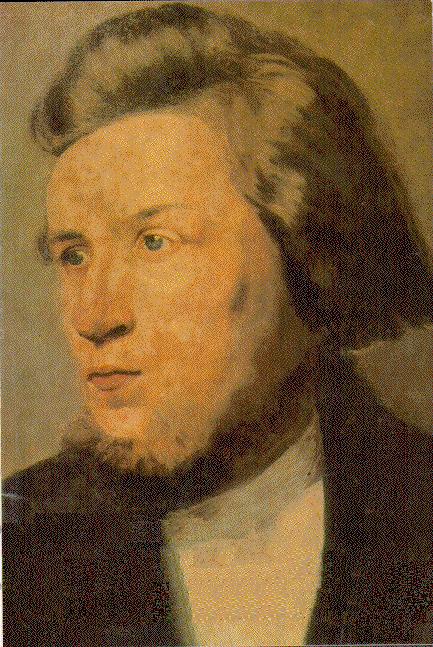
I wrote a fairly long meditation on Pietist Christianity and legalist Christianity yesterday. And I think I failed to actually say one of the things I meant to say.
Which is ironic, because that was one of the very weaknesses I meant to criticize (gently) in my hero, the Norwegian lay preacher Hans Nielsen Hauge. Some years back I began work on translating his works, a project another linguist has since taken over. Mostly to my relief. Because Hauge is exceedingly hard to translate. I’ve heard of one scholar who started the same project years back and simply gave up in frustration. “He’s untranslatable!” that person said.
I think that’s an exaggeration, but I sympathize. Hauge is very hard to translate. The man was in no way a systematic thinker. He was an enthusiast. He poured his words out onto the page, it appears, just as they came to him. Sometimes he goes on for pages without a period or a paragraph break. I imagine Hauge as being very much like a certain pastor I once worked for. He hired me precisely for my writing skills. Because he found it almost impossible to actually get to the point. He communicated all right in person, because he could supplement his words with facial expressions and gestures. But when writing he just lost his way.
After many years, I think I finally figured out Hauge’s point. It’s a point he never states in so many words, but once you’ve figured it out, it illuminates all the rest of his verbiage. And it explains some of the puzzling – or even apparently unorthodox – things he seems to say.
That central point, I think – and I mentioned this part last night – was that he believed that a true believer – someone who was genuinely “awakened,” as he put it, would find the Christian life easy. They would be filled with the same joy and love he felt. We all know how love lightens burdens. When I was in love, long ago, I would have done many things far outside my comfort zone – and sometimes I actually did those things – just to please her. Just to be close to her. Love made hard tasks light.
This is a beautiful vision, and I believe it’s true in the Christian life to some extent.
But it’s not equally true for everybody. And it’s not always permanently true . I have good reason to believe that Hauge himself, during his ten-year imprisonment, when he was denied books and visits from his friends for long periods, eventually learned that the Way could be hard. He never lost his faith, but he learned that even true believers can struggle.
Some of us aren’t like Hauge. Our experience with God may be lower-key, less emotional. We have a smaller tank of emotional fuel to burn (those of us who are introverts feel this especially). We’re more like John Haugvaldstad, who needed rules and lists to keep himself on the straight path. I believe he took it to an extreme, but for some people this pattern seems prudent. Books like Jordan Petersen’s 12 Rules for Life fill a need for them (us).
Among us Lutherans there’s an old tension – sometimes fiery verbal warfare – between the Pietists and the “Confessionals.” The Lutheran Church, Missouri Synod is the largest and best-known Confessional church body in the US. Going back to the days of immigration, the Pietists and the Confessionalists anathematized one another. The Pietists (like Georg Sverdrup, subject of the journal I edit) condemned the Missouri Synod as cold, formalistic, Catholic-adjacent, and spiritually dead. Confessionalism, Sverdrup wrote, provided a “sleeping pillow” on which members of dead congregations could slumber while their pastors tried futilely to do all the work of the church on their own.
The doctrine-centered Missourians, on the other hand, condemned the Haugean Pietists as unstable, emotional enthusiasts. If synods and pastors didn’t keep a close eye on the laity, checking their every statement for orthodoxy and basically barring them from any kind of spiritual ministry, then everybody would just go crazy. Subjectivism would take over. You’d have churches abandoning traditional sexual morality, and syncretizing with other religions, and reciting something like, oh, “the Sparkle Creed.”
Which, sadly, is just what happened. Missouri Synod theologians rarely hesitate in making the charge that all the aberrations we see today in The Very Big Lutheran Church Body That Shall Remain Nameless (as I call it) spring from the subjectivism inherent in Pietism.
I have to admit their prophecies came true.
But I still think Hauge and Sverdrup had a point.
The heart of my own theology, for many years, has been the Incarnation. The Word became Flesh. Somehow, through the power of God, body and mind came into harmony. Justice and Mercy kissed. The absolute and the subjective cooperated perfectly in the one perfect Man.
That’s what I want to see reflected in the church, and in myself.




